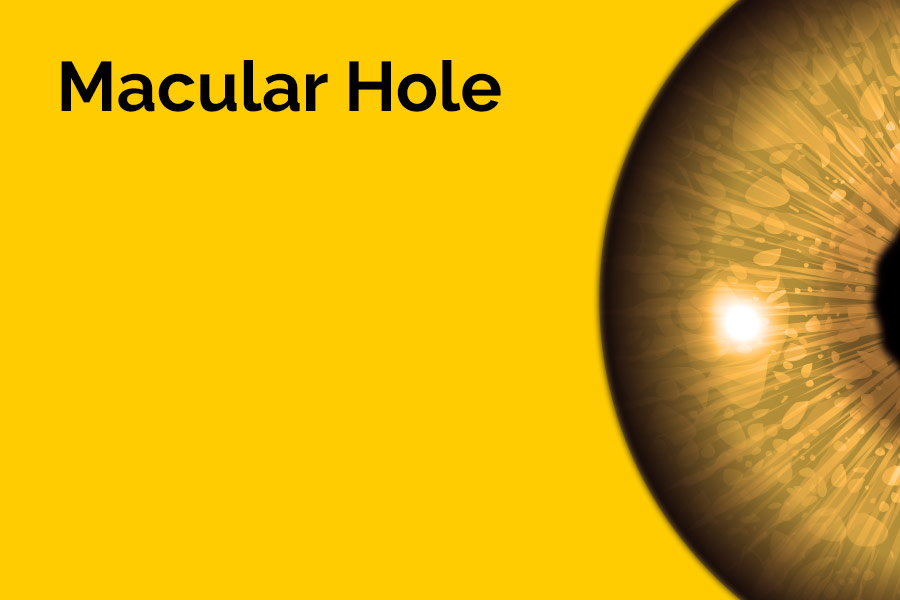Macular Hole
A macular hole is a small break in the macula, located in the centre of the retina. The macula is the only area of the eye that sees crystal clear, colour vision necessary for reading, driving and seeing fine detail.
A macular hole can lead to blurred and distorted central vision and generally only affects one eye. Macular holes are often related to the ageing process, therefore, are more likely to occur in the over 60s. Women also have a higher risk of developing a macular hole than men.
Symptoms
The symptoms of a macular hole are very similar to those of macular degeneration. Like macular degeneration, it is most common in those aged over 60.
A macular hole generally only affects your central vision, so your peripheral vision will remain unaffected. You may find it increasingly difficult to read, and you may notice black or grey spots, or blank areas, in your vision. Macular holes generally only affect one eye, although it is possible for both eyes to be affected by macular holes.
The holes usually develop over time, so you may not notice any symptoms until your vision becomes affected. Early signs of macular holes include blurring and distortion of your vision, and you may notice that straight lines appear to be bent or wavy. The Amsler Grid test is a simple test that can be performed that will help determine if your vision is distorted in this way.
The size and location of the hole will determine how much of your vision is affected.
Diagnosis, Screening and Tests
To detect a macular hole your ophthalmologist will put drops in your eye to dilate your pupil. This allows them to look through a special lens and view the inside of your eye.
The ophthalmologist will then take pictures of your eye using optical coherence tomography. With optical coherence tomography, a machine scans the back of your eye. This provides a detailed image of your retina and macula. These images can be studied to identify any problems.
Treatments
The only way to treat a macular hole is an operation. Eye drops or glasses have no effect.
Some individuals chose not to have the surgery and accept poor central vision in their affected eye. This is reasonable, especially if the vision in their other eye is not also affected.
Please discuss the details of the operation with your consultant before the surgery takes place.
The operation to repair your macular hole is known as a vitrectomy and usually takes around an hour to complete. The procedure will be supervised by an experienced surgeon, who will either perform the surgery themselves or oversee a more junior surgeon who might undertaker part or all of the operation.
Prevention
Aside from avoiding trauma, there is nothing that can be done to avoid developing a macular hole. Unfortunately, good nutrition and living an active lifestyle do not contribute to the formation of a macular hole.
Receiving an annual eye exam is still the best way of detecting a macular hole in its developing stage.
